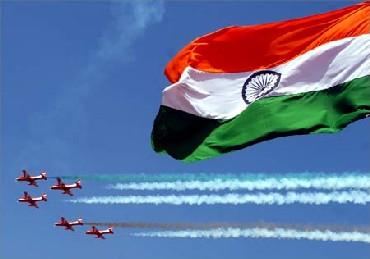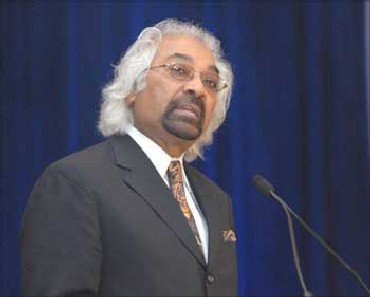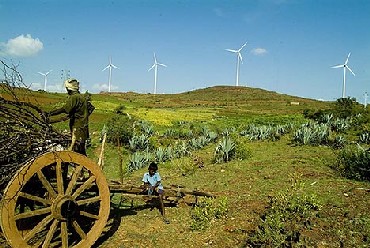Photographs: Jagadeesh Nv/Reuters
That India is a growth story is old hat. It is time to talk about the story beyond that story, was the message at this year's India Business Conference at the Kellogg School of Management.
The conference, which was held on January 29, brought together speakers from business, political, and cultural institutions in India to discuss 'Building bridges and creating connections.'
"India has already arrived on the global arena," said conference co-chair Anil Goteti. "We wanted to talk about topics beyond the growth story."
Sam Pitroda, architect of India's telecom revolution, opened the conference, while Praful Patel, India's minister for heavy industries and enterprise, closed it.
In between the two keynotes there was an assortment of panel discussions, speeches and a social innovation competition.
...
The story beyond India's growth story
Image: Sam Pitroda, architect of India's telecom revolutionThe best brains of the world, Pitroda said, were busy solving problems of the rich, who really don't have any problems to solve. 'I always say the problems of the poor are complex and challenging,' he added.
He talked about the importance of connecting people through information. His commission's flagship project - the Public Information Infrastructure project - aims to connect 250,000 Panchayats (local governments) in India through a fiber-optic cable network.
In addition to creating mini-economies of each village, the project will also democratise information and promote transparency.
The media and entertainment panel discussion turned out to be an entertaining one. Moderator Sree Sreenivasan, dean, student affairs, Columbia Journalism School, took audience questions through SMS and promoted KIBC's twitter feed.
...
The story beyond India's growth story
Photographs: Reuters
Against a backdrop of images of magazine covers related to South Asia, the panelists discussed the state of Indian media.
The prognosis was grim. 'I believe the media is undergoing a huge identity trap right now,' said Shivnath Thukral, a former television journalist and head of group branding at Essar group.
'There is no differentiation between the channels. And, news channels don't know what role to play in society.' The identity crisis, he said, was partly due to the growth of social media like Facebook and Twitter.
Illustrating with the example of how the social media forced the recent Niira Radia tapes controversy onto national news, he added, 'The media is no longer in control of its sources.'
...
The story beyond India's growth story
Photographs: Mick Tsikas/Reuters
Afsar Zaidi, chief executive officer, Carving Dreams, a Bollywood talent management agency, said the future of the Indian film industry and sports, especially the IPL franchise was bright.
Another highlight of the event was the social innovation competition. The competition attracted entries from eight schools, including Northwestern, Columbia, and Stanford.
The winning entry from Northwestern attempts to convert human waste into energy. It envisages a toilet that consists of two pieces: A detachable cartridge at the bottom and a squatting platform at the top.
With the help of collection agencies, the detachable cartridge can be transported to a central location where it will be emptied and the waste can be converted to methane. The methane can then be used to produce electricity and batteries for villages.
...
The story beyond India's growth story
"When you move off the main road in a village, you lose contact with the electricity grid," said Anoop Jain, former Northwestern student and part of the winning duo.
"Our solution works to provide electricity through batteries so the dependency on the grid is reduced."
He said they would be piloting the programme in three places by the end of this year. They are raising funds (approximately $200,000) for the programme.
"The idea behind the competition was to have something tangible that lived on after the conference," said conference co-chair Nishant Verman.







article